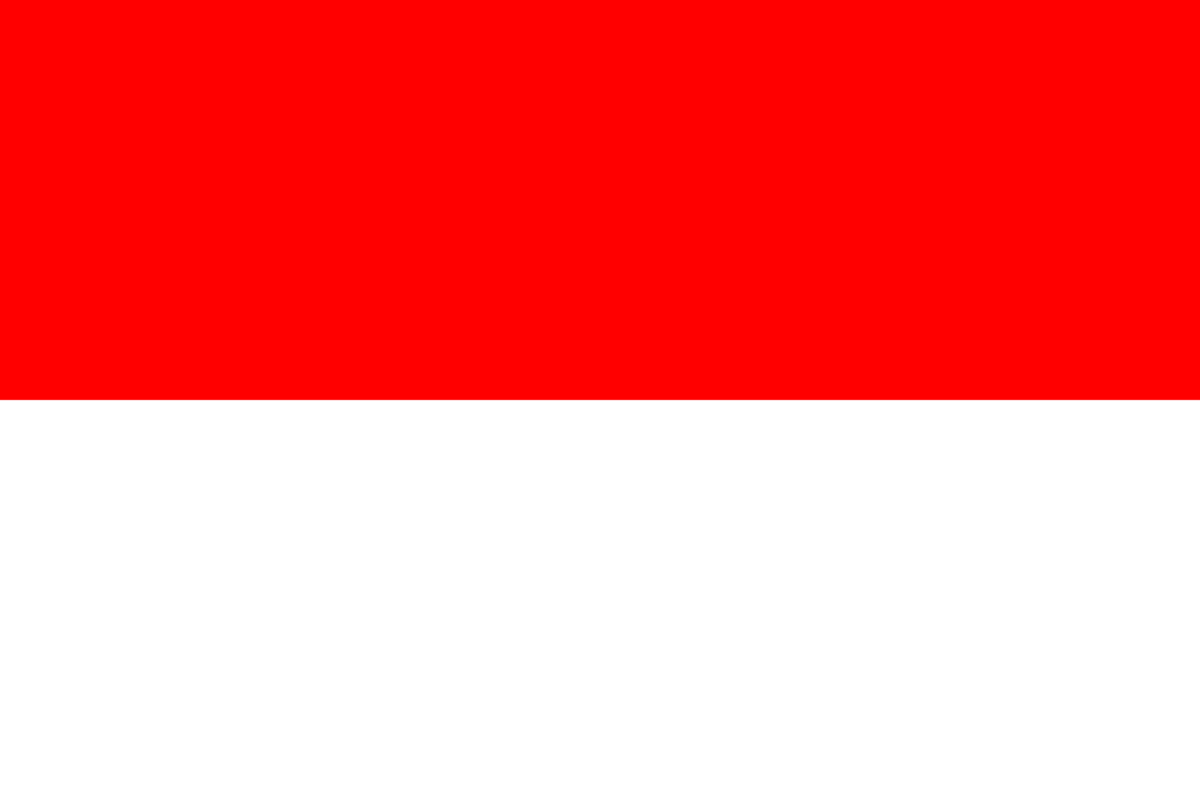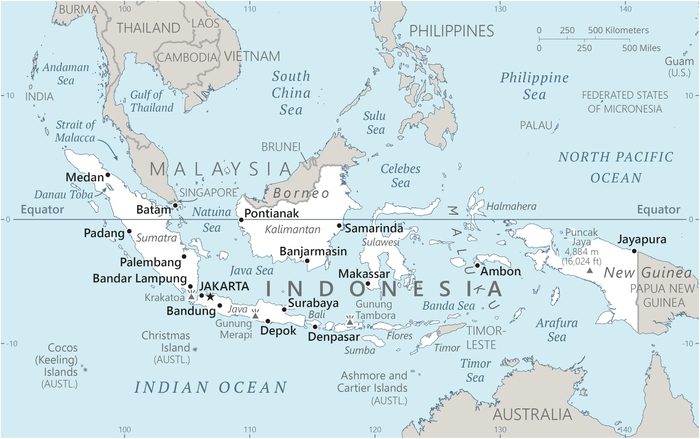Overview
The Republic of Indonesia is a country in Southeast Asia made up of more than 17,000 islands. The most significant of these are Sumatra, Java, Sulawesi, the southern portion of Borneo and the western half of New Guinea. Indonesia has the fourth largest population in the world.
Indonesia has considerable biodiversity and natural resources, a fact which has had a bearing on its history. The Portuguese settled in the 16th Century and then, from the 17th Century, the Dutch became the major power and the land became known as the Dutch East Indies. The Japanese occupied Indonesia during the Second World War, dismantling much of the Dutch heritage. Indonesian sovereignty was formally recognised by the Netherlands in 1949 (with the exception of western New Guinea, which became part of independent Indonesia in 1963). Modern Indonesia is a republic, with a presidential, multi-party system of government.
Indonesia’s constitution provides for freedom of religion but its government officially recognises six religions: Islam, Roman Catholicism, Protestantism, Hinduism, Buddhism and Confucianism. Indonesia is the world’s most populous Muslim-majority country. Aceh, at the north-western end of the island of Sumatra, is the only province in Indonesia authorized by the government to implement Islamic Sharia Law.
What it means to be a Christian in Indonesia
Christianity is the second largest religion in Indonesia, after Islam. In 2018 it was stated that 11% of the population were Christian, of which 8% were Protestant. Indonesia’s constitution provides for freedom of religion. It states that all persons have the right to worship according to their own religion or belief – and also states that the nation is based upon the belief in one ‘supreme God’. Christians living in major cities can worship openly and freely, although those who come to faith in Christ from a Muslim background will often choose to worship in a church that is away from their own local community.
Persecution
The main form of persecution in Indonesia comes from Islamist extremist groups. The turn of the Century saw prolonged attacks on Christian churches across Indonesia, particularly in the Maluku islands to the east. Radical Islamist organisations such as Jemaah Islamiah have been committed to the establishment of an Islamic state in southeast Asia.
In 2003, 13 Christians were killed in the Poso District, on the island of Sulawesi, by unknown masked gunmen. Christian community leaders on the island have repeatedly criticized the authorities for allegedly not doing enough to find the perpetrators of attacks on Christians. In October 2005 three Christian teenage girls were beheaded by Islamist militants in the same district. In 2018 three churches in Surabaya, Indonesia’s second largest city, were the targets of suicide bombers.
In Aceh province, where Sharia Law is practiced, a number of churches have been closed by the local authorities. In rural areas, churches that actively share their faith in Christ face persecution from Muslims, as well as opposition from local governments and the community.
Muslim background believers who openly share their new faith in Christ frequently face pressure from family members because their conversion affects the family’s social standing. Foreigners who openly evangelize Muslims are required to leave the country.
Release International work
Indonesians from a Muslim background who come to faith in Christ will face various forms of persecution. Such people need encouragement and training.
Release International partners in Indonesia are developing training programmes for Muslim-background believers, both to strengthen their biblical understanding and to equip them to reach out in the very areas where they face opposition, in order to share the gospel. New believers are trained strategically in building bridges to their local Muslim communities

